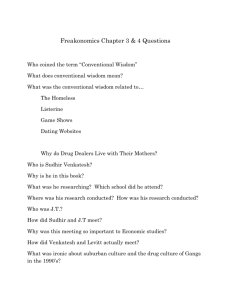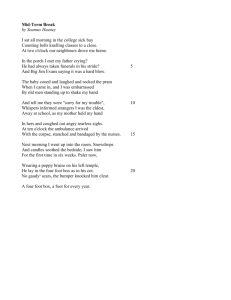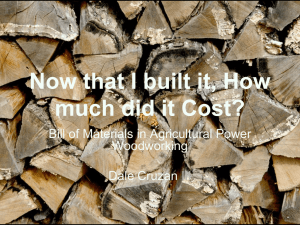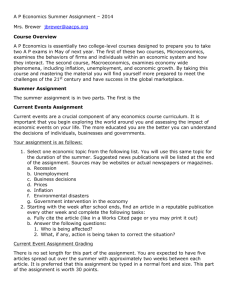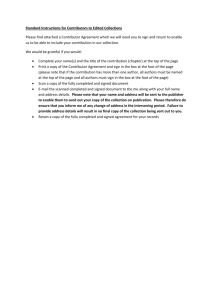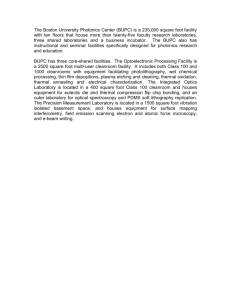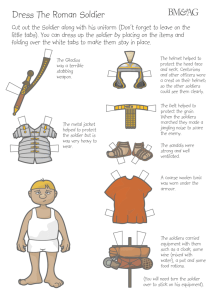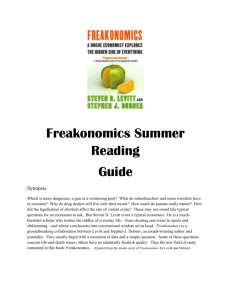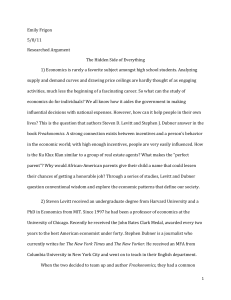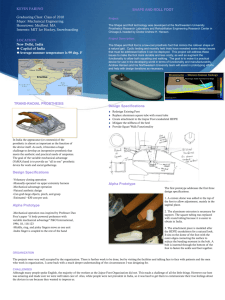Freakonomics Ch 3: Discussion Questions
advertisement
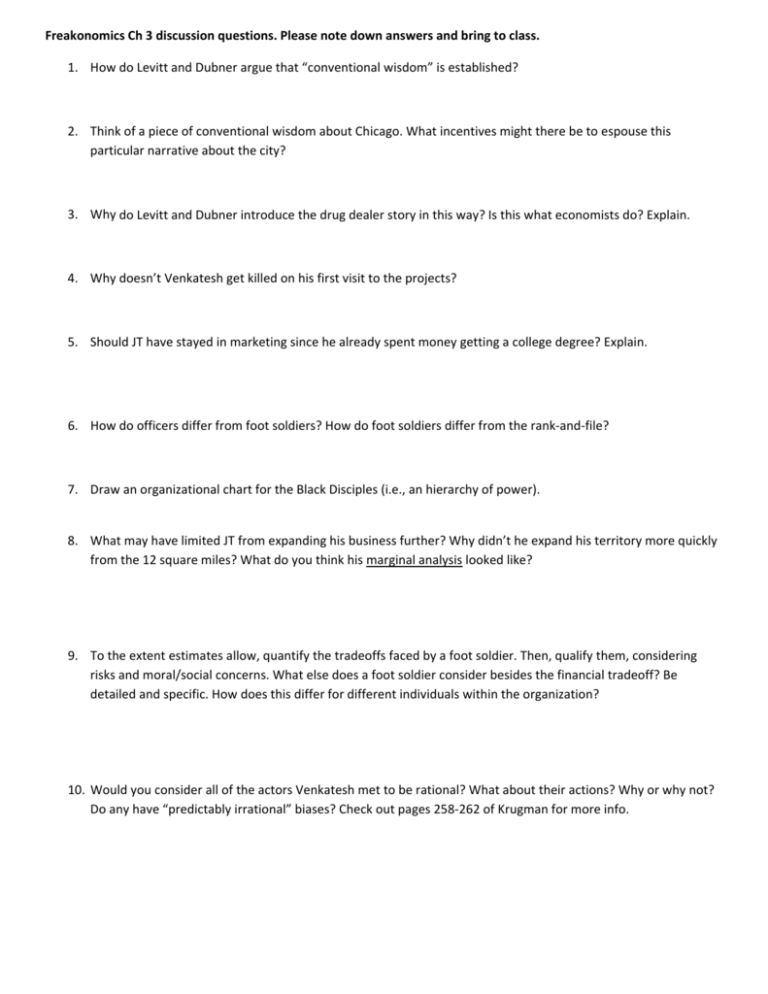
Freakonomics Ch 3 discussion questions. Please note down answers and bring to class. 1. How do Levitt and Dubner argue that “conventional wisdom” is established? 2. Think of a piece of conventional wisdom about Chicago. What incentives might there be to espouse this particular narrative about the city? 3. Why do Levitt and Dubner introduce the drug dealer story in this way? Is this what economists do? Explain. 4. Why doesn’t Venkatesh get killed on his first visit to the projects? 5. Should JT have stayed in marketing since he already spent money getting a college degree? Explain. 6. How do officers differ from foot soldiers? How do foot soldiers differ from the rank‐and‐file? 7. Draw an organizational chart for the Black Disciples (i.e., an hierarchy of power). 8. What may have limited JT from expanding his business further? Why didn’t he expand his territory more quickly from the 12 square miles? What do you think his marginal analysis looked like? 9. To the extent estimates allow, quantify the tradeoffs faced by a foot soldier. Then, qualify them, considering risks and moral/social concerns. What else does a foot soldier consider besides the financial tradeoff? Be detailed and specific. How does this differ for different individuals within the organization? 10. Would you consider all of the actors Venkatesh met to be rational? What about their actions? Why or why not? Do any have “predictably irrational” biases? Check out pages 258‐262 of Krugman for more info.
